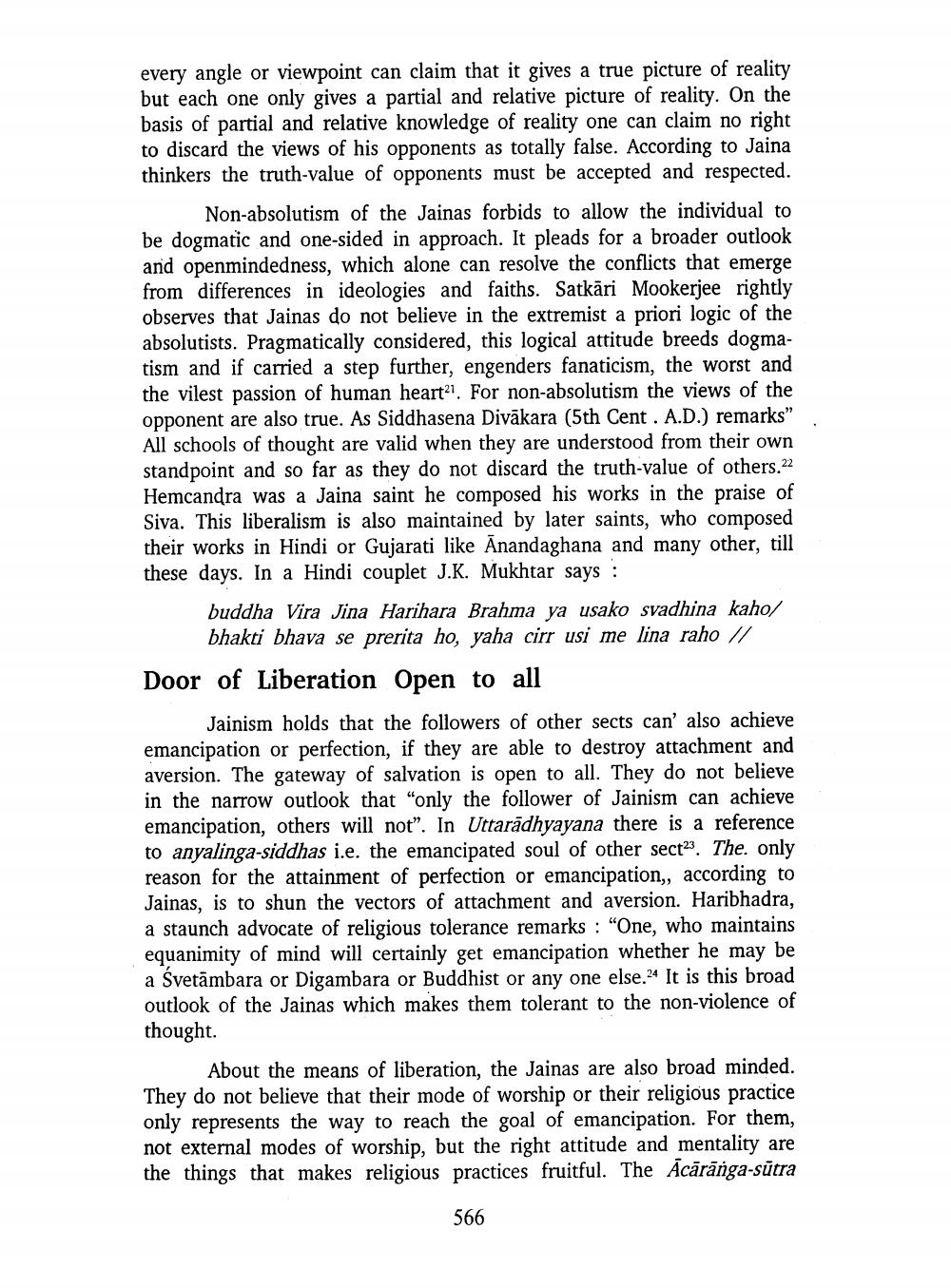________________
every angle or viewpoint can claim that it gives a true picture of reality but each one only gives a partial and relative picture of reality. On the basis of partial and relative knowledge of reality one can claim no right to discard the views of his opponents as totally false. According to Jaina thinkers the truth-value of opponents must be accepted and respected.
Non-absolutism of the Jainas forbids to allow the individual to be dogmatic and one-sided in approach. It pleads for a broader outlook and openmindedness, which alone can resolve the conflicts that emerge from differences in ideologies and faiths. Satkāri Mookerjee rightly observes that Jainas do not believe in the extremist a priori logic of the absolutists. Pragmatically considered, this logical attitude breeds dogmatism and if carried a step further, engenders fanaticism, the worst and the vilest passion of human heart. For non-absolutism the views of the opponent are also true. As Siddhasena Divākara (5th Cent. A.D.) remarks" All schools of thought are valid when they are understood from their own standpoint and so far as they do not discard the truth-value of others.22 Hemcandra was a Jaina saint he composed his works in the praise of Siva. This liberalism is also maintained by later saints, who composed their works in Hindi or Gujarati like Anandaghana and many other, till these days. In a Hindi couplet J.K. Mukhtar says:
buddha Vira Jina Harihara Brahma ya usako svadhina kaho/
bhakti bhava se prerita ho, yaha cirr usi me lina raho // Door of Liberation Open to all
Jainism holds that the followers of other sects can also achieve emancipation or perfection, if they are able to destroy attachment and aversion. The gateway of salvation is open to all. They do not believe in the narrow outlook that "only the follower of Jainism can achieve emancipation, others will not”. In Uttarādhyayana there is a reference to anyalinga-siddhas i.e. the emancipated soul of other sect23. The only reason for the attainment of perfection or emancipation, according to Jainas, is to shun the vectors of attachment and aversion. Haribhadra, a staunch advocate of religious tolerance remarks : "One, who maintains equanimity of mind will certainly get emancipation whether he may be a Svetāmbara or Digambara or Buddhist or any one else. 24 It is this broad outlook of the Jainas which makes them tolerant to the non-violence of thought.
About the means of liberation, the Jainas are also broad minded. They do not believe that their mode of worship or their religious practice only represents the way to reach the goal of emancipation. For them, not external modes of worship, but the right attitude and mentality are the things that makes religious practices fruitful. The Acāranga-sūtra
566




